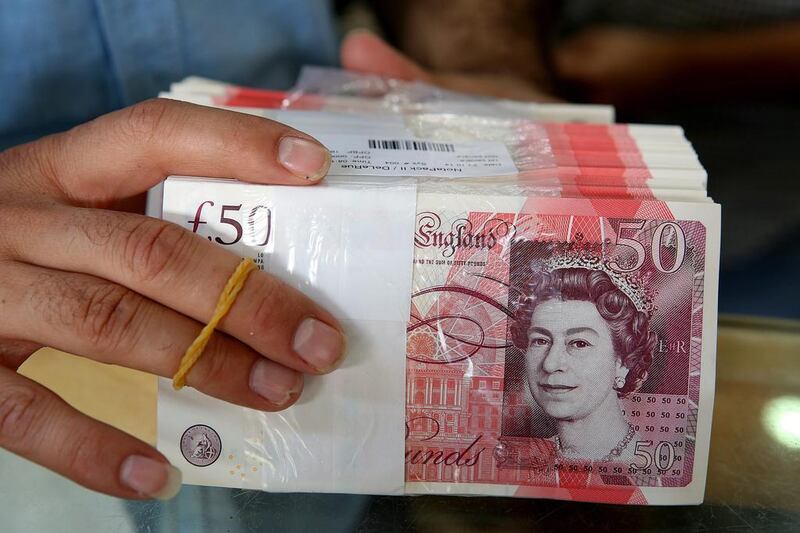The British pound looks set to extend its decline this week, when traders and economists predict the Bank of England (BoE) will cut interest rates for the first time in more than seven years.
Sterling, which posted its third consecutive monthly drop against the US dollar this month, has weakened against all of its 31 major peers. Britain’s vote last month to leave the European Union, along with recent economic data that underscored the ensuing setback to consumer confidence and business activity, have led to increased speculation that the BoE will loosen monetary policy when its board meets on Thursday.
All but two of the 46 economists in a survey forecast that policymakers led by the governor, Mark Carney, will cut the key interest rate from a record-low 0.5 per cent. While the median estimate in a separate survey was for the BoE to maintain its asset-purchase target of £375 billion pounds (Dh1.8 trillion), the highest forecast of £525bn underlined the uncertainty over the extent of the BoE’s stimulus measures. The central bank will also release its quarterly inflation report.
“I think it’s a done deal that we’re going to get easing next week, but the question is just how aggressive,” said Lee Hardman, a foreign exchange strategist at Bank of Tokyo-Mitsubishi in London.
“If we get a package of measures and not just a rate cut it will reinforce the weakening trend for the pound.”
The pound slid 0.3 per cent this month to $1.32 on Friday, having tumbled about 9 per cent in the previous two months.
Sterling weakened for a second month versus the euro, losing 0.9 per cent to 84.16 pence. Mr Hardman said the UK currency was likely to end the year at $1.24, a level last reached in 1985.
At Friday’s closing rates it took Dh4.85 to buy a pound, against Dh5.44 at the start of the year – a change of 10.8 per cent.
With traders bracing for the BoE to ease policy this week, Mr Hardman said “it is a higher hurdle for them to out-dove current market expectations” and that could “potentially dampen the negative pound reaction”.
business@thenational.ae
Follow The National's Business section on Twitter





